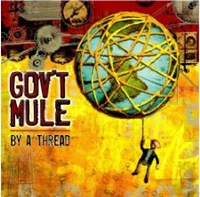![]()
RIYL: Allman Brothers, Robin Trower, Mountain
 Gov’t Mule treads that narrow divide that links jam band excess, raucous Southern rock and blustery white boy blues. Founded by guitarist Warren Haynes and the late Allen Woody, both of whom had been drafted to serve with the Allman Brothers during one of the band’s frequent reshufflings, the duo subsequently launched Gov’t Mule as an active side project in the mid ‘90s.
Gov’t Mule treads that narrow divide that links jam band excess, raucous Southern rock and blustery white boy blues. Founded by guitarist Warren Haynes and the late Allen Woody, both of whom had been drafted to serve with the Allman Brothers during one of the band’s frequent reshufflings, the duo subsequently launched Gov’t Mule as an active side project in the mid ‘90s.
Since then, Gov’t Mule hasn’t digressed all that much from the rambling jams and blustery exhortations that distinguished the music Haynes and Woody created as employees in their day job. In fact, if the band was actually striving to set itself apart, it was never all that evident. For the most part, the group’s recorded catalog has been dominated by concert recordings, which have emphasized their instrumental prowess over more concise songcraft.
To a certain extent then, By a Thread marks something of a turning point in their recording campaign, placing a focus more on the material rather than their usual pyrotechnics. To be sure, there are the usual overwrought growls and howls, as evident in such blazing rampage of “Broke Down on the Brazos,” “Steppin’ Lightly” and “Monday Morning Meltdown,” each a searing onslaught that finds them adhering to more turgid testimonials. On the other hand, “Forevermore” and “Frozen Fear” suggest the band might be willing to treat the material with a hint of subtlety by toning down the more aggressive posturing. Of course, fans need not worry about an abrupt change of course, but it is worth noting that By a Thread might provide something of a kick to Govt Mule’s newer recruits. (Evil Teen 2009)







